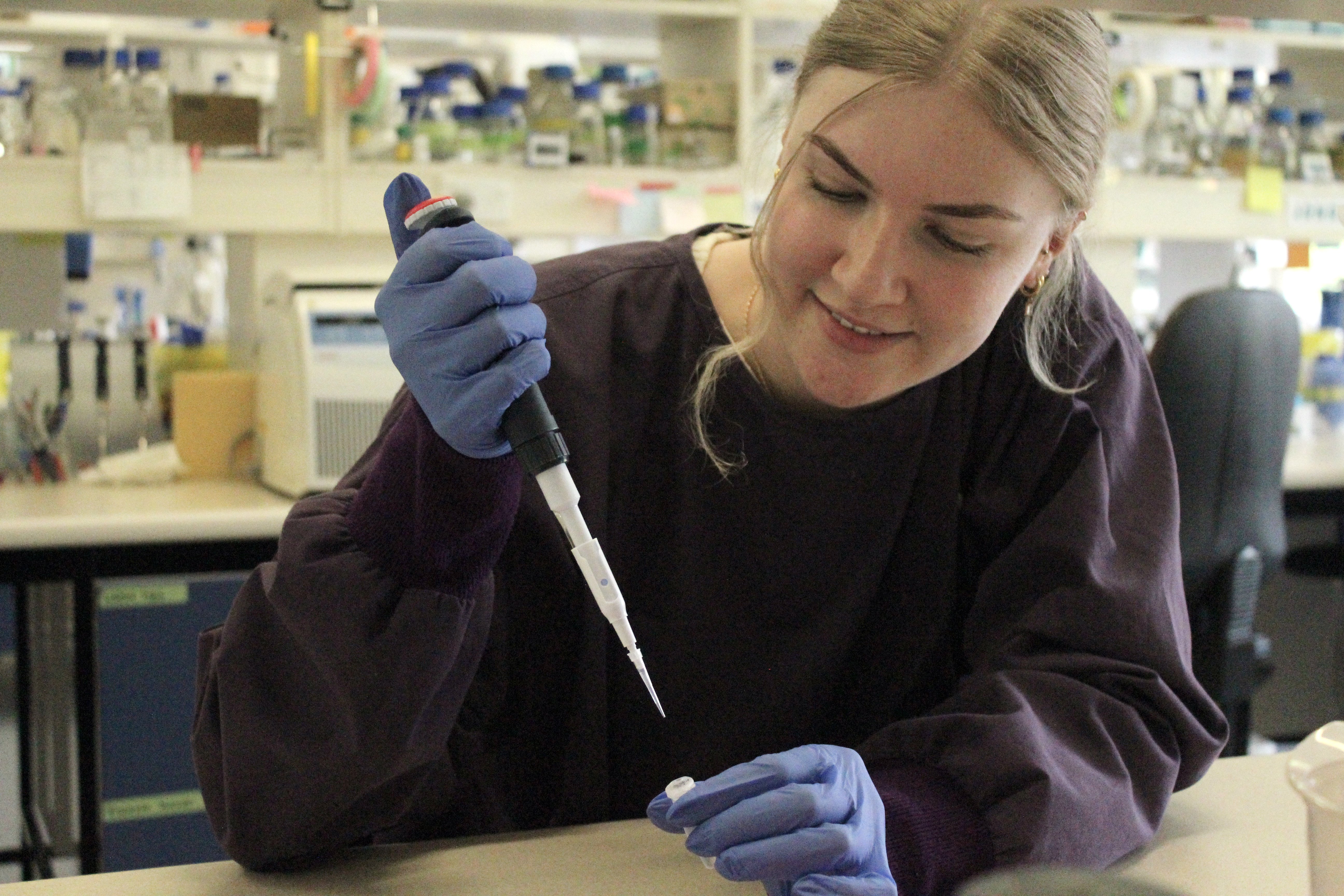
The University of Otago student is about to start a PhD next year on the role of chromatin remodelling genes in neurodevelopmental disorders and, before she has even started the degree, she has been awarded a Neurological Foundation scholarship worth $179,000 to pursue it.
Miss Knoef said for as long as she could remember, her mother had had the autoimmune disease where the immune system attacks the protective myelin sheath around nerves in the brain and spinal cord, leading to numbness, weakness, vision problems, fatigue and balance issues, which can worsen over time.
"It's progressive, so it gets worse over time, and I've kind of seen first-hand the impact that this can have on someone and their family, their friends, their whole life.
"Lots is known about the condition that my mum has, but I can't imagine how difficult it would be for people that are facing neurodevelopmental conditions where not a lot is known, and families just don't have an answer to why it has happened.
"So, that's what made me really interested in the research we're doing."
She was delighted to receive the scholarship, which would allow her to investigate a gene associated with a neurodevelopmental disorder called Coffin-Siris syndrome (CSS).

"One gene that is strongly associated with CSS is called ACTL6A, but it can have different genetic variations that are poorly understood, leaving families without clear answers.
"This research will uncover more about the ACTL6A gene, how different variants alter its function, and identify other similar genes involved in neurodevelopmental disorders, providing much needed answers to affected families."
Miss Knoef was one of four PhD students across New Zealand to receive a cut of almost $660,000 to support the next generation of neurological scientists to advance brain research.
Fellow University of Otago PhD student Luke Spencer Bialostocki will receive $124,200 over two years to research neuropathic pain — a type of chronic pain caused by damage or dysfunction in the nervous system.
"It occurs when damaged nerve fibres send incorrect signals to the brain, leading to sensations such as burning, stabbing, electric shocks, tingling or numbness."
He said his research would explore how the brain had become altered in people with neuropathic pain, and he would test a promising, non-invasive therapy using neurofeedback from an electroencephalogram (EEG).
"The goal is to develop a brain training programme for those with chronic pain to improve symptoms and potentially create long-term pain relief."
University of Auckland PhD student Evelyn Jade will receive $176,234 to study a rare neurodegenerative condition called neuronal intranuclear inclusion disease (NIID), which is mostly found in Asia, but has recently been diagnosed in Māori in New Zealand.
University of Auckland PhD student Nathaniel Singleton will receive $180,368 to determine the role of the Bach2 protein in modulating glial cells as a treatment for spinal cord injuries.
Neurological Foundation chief executive Rich Easton said their work was vital in unlocking new discoveries that would improve lives and shape the future of neurological health.












